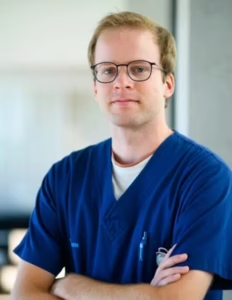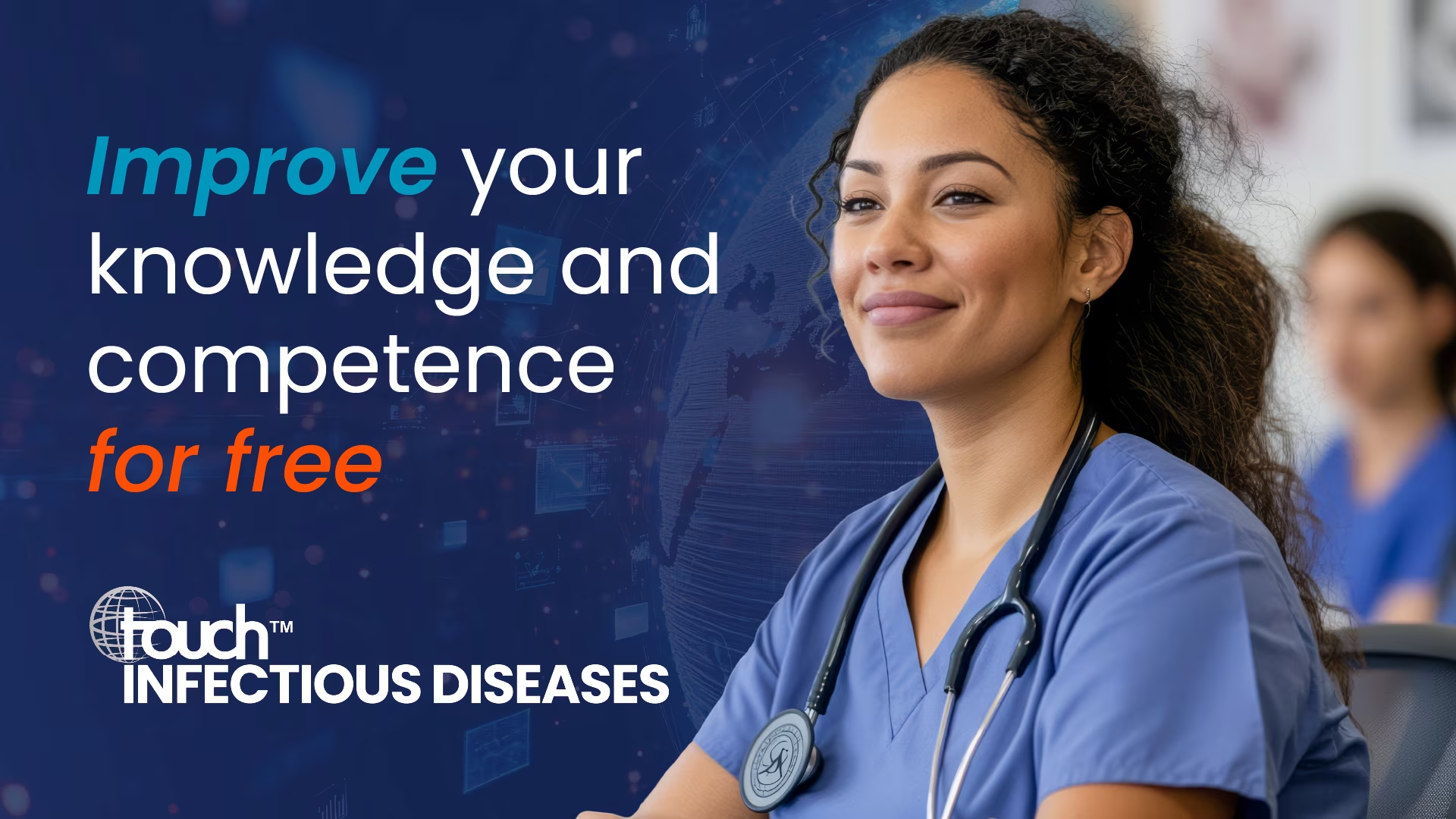
Dr Simon Feys (University Hospitals Leuven, Belgium) is a specialist-in-training in internal medicine with a focus on intensive care at University Hospitals Leuven, Belgium. Alongside his clinical work, he is pursuing a PhD on viral-associated pulmonary aspergillosis (VAPA) in critically ill patients, combining clinical insight with translational science. His research has been recognized internationally, and he was recently awarded the ESCMID Global 2025 Young Investigator Award. In this interview, Dr Feys reflects on what drew him to critical care, the challenges and rewards of working in the ICU, and the evolving role of infectious diseases in the care of the critically ill.
Q: Congratulations on winning the Young Investigator Award at ESCMID Global 2025. Is there a moment in your career that cemented your passion for your specialty?
Thank you. I’m currently completing my training in internal medicine and will then specialise in critical care – and infectious diseases remain central to intensive care practice. My passion for intensive care began during my rotations in the ICU. The complexity and acuity of critical care – the need to think about every organ system simultaneously – really drew me in. You’re not just treating an infection, but also managing its impact on all organ systems. The level of monitoring and the precision required is remarkable. On my very first day in the ICU, I was overwhelmed by the machines, ventilators, ECMO, renal replacement therapy – but also struck by how much of a difference even small clinical decisions can make. It’s one of the few places in medicine where attention to detail truly determines whether a patient survives or not.
Infectious diseases play a huge role in ICU. Many of our patients receive antibiotics or antifungals, and infections – particularly hospital-acquired ones – can significantly set back a patient’s progress or even be fatal. That clinical reality, combined with my research focus on VAPA, has only deepened my commitment to this field.
Q: What advice would you offer those starting out in critical care medicine?
Critical care is a multidisciplinary field, and people enter it from different backgrounds – internal medicine, anaesthesiology, emergency medicine. Regardless of your path, it’s important to be curious about every aspect of medicine. The kidneys matter, the lungs matter, the heart matters – everything plays a role, and you need to understand it all.
You also need to be comfortable communicating, especially with families. In ICU, you’re often the one delivering bad news and guiding people through the most difficult moments of their lives. It’s emotionally intense.
Allow yourself time to grow. I’m still learning every day. Lifelong learning is essential. Read widely, stay up to date, and if you find a particular topic that excites you – like infectious diseases in my case – you can specialise, but don’t lose touch with the broader picture.
Q: How has working with patients shaped your approach to medicine?
Patients are the reason we do any of this. When you’re deep in research, it’s easy to become disconnected. But every time I return to clinical work, I’m reminded of why the research matters. Seeing patients again brings clarity and purpose.
That connection is vital. Research becomes more than data and analysis – it becomes a means of helping real people. Of course, when you’re always in the clinic, the emotional burden can be heavy too, but it’s also grounding.
Q: What topics most excited you at ESCMID Global 2025?
With my background, I was particularly interested in the fungal sessions – especially those on novel antifungals, which are highly relevant to my research and clinical practice.
I enjoyed the sessions on infections in ECMO patients and a talk by Dr Evangelos Giamarellos-Bourboulis on macrolides and pulmonary infections. These are important and timely topics in critical care.
From Leuven, several colleagues presented – including researchers from our lab: Dr Jannes Heylen, Dr Lenn Maessen and Dr Valentine Delanote. Dr Delanote presented new data on the longitudinal galactomannan profiling in patients with severe viral pneumonia. It’s exciting to see that work reaching an international audience.
About Simon Feys
Dr Simon Feys earned his medical degree from KU Leuven, Belgium, in 2018. He is currently undergoing specialist training in internal medicine with a subspecialty in intensive care at University Hospitals Leuven. Alongside his clinical work, he has obtained his PhD in 2024 under guidance of Prof Joost Wauters at KU Leuven. His research investigates viral-associated pulmonary aspergillosis (VAPA) in critically ill patients, integrating both clinical insights and translational science. Using multi-omics techniques on patient-derived samples, Dr Feys aims to unravel the disease’s underlying mechanisms and identify new avenues for diagnosis, prognosis, and treatment. His findings have been featured at international conferences including ECCMID, TIMM, and ISHAM, and he has published first-author papers in leading journals such as Intensive Care Medicine, The Lancet Respiratory Medicine, Clinical Infectious Diseases, The Lancet Microbe, and the American Journal of Respiratory and Critical Care Medicine.
Interviewer: Caroline Markham
Disclosure: Simon Feys has received grant/research support from ESCMID and FWO (Research Foundation Flanders). He has received travel support from Pfizer and Gilead, and support for public PhD defense from Pfizer, Gilead and Mundipharma. He has received speaker’s fees from Healthbook Company.
Cite: ESCMID Global 2025 Young Investigator awaree Dr Simon Feys on ICU Medicine and Infectious Disease: touchINFECTIOUS DISEASES Future Leader 2025. touchINFECTIOUS DISEASES. May 7th, 2025
SIGN UP to touchINFECTIOUS DISEASES!
Join our global community today for access to thousands of peer-reviewed articles, expert insights, and learn-on-the-go education across 150+ specialties, plus concise email updates and newsletters so you never miss out.


